Several graduate students with ties to the Department of Biomedical Informatics (DBMI) celebrated a significant milestone along the journey to complete their Ph.D. programs by participating in the UAMS Research Induction Ceremony on Monday.
Sangam Kandel, Mitra Rocca, and Catherine “Cat” Shoults have passed the qualifying exams for their degrees, marking the transition to a focus on their dissertation research and away from a time spent mainly on coursework.
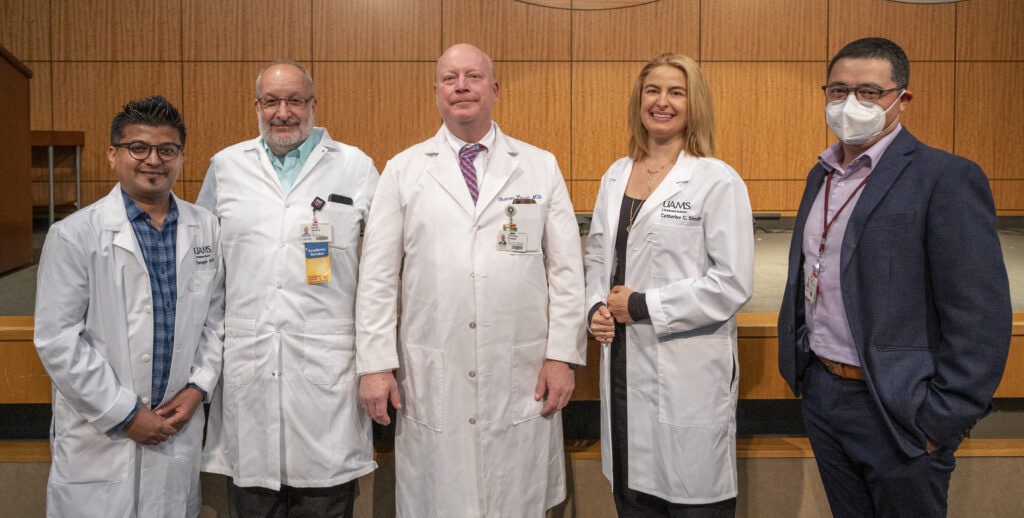
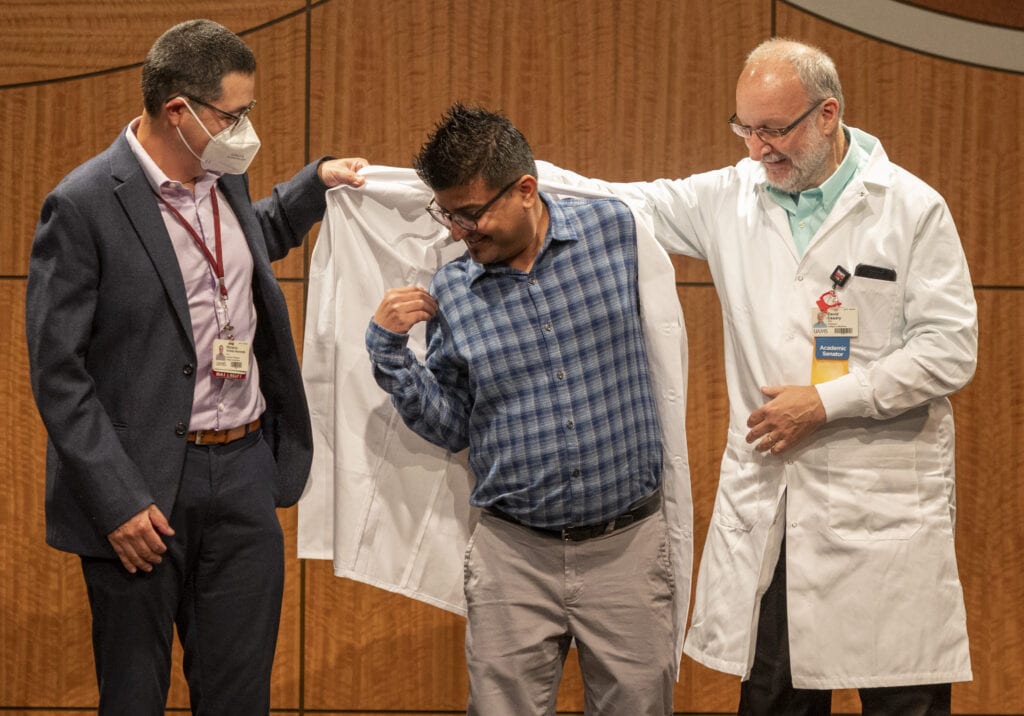
Sangam’s project is related to the genomic surveillance of SARS-CoV-2, the virus that causes COVID-19. He has sequenced about 3,000 SARS-CoV-2 genomes from Arkansas using Nanopore handheld genomic sequencer technology, including the first Omicron variant in Arkansas. With the help of sequencing, Sangam can track what variant of SARS-CoV-2 is circulating in the community, identify the transmission pattern, and track mutations within the viral genome that plays a key role in disease pathogenesis, severity of symptoms, efficacy of vaccines and antibody treatment.
“The research is in an exciting stage where we are comparing the genomes we have sequenced with millions of genomes available from public database to better understand the evolution of the virus over time,” Sangam said.
Dr. David Ussery is Sangam’s Dissertation Committee chair.
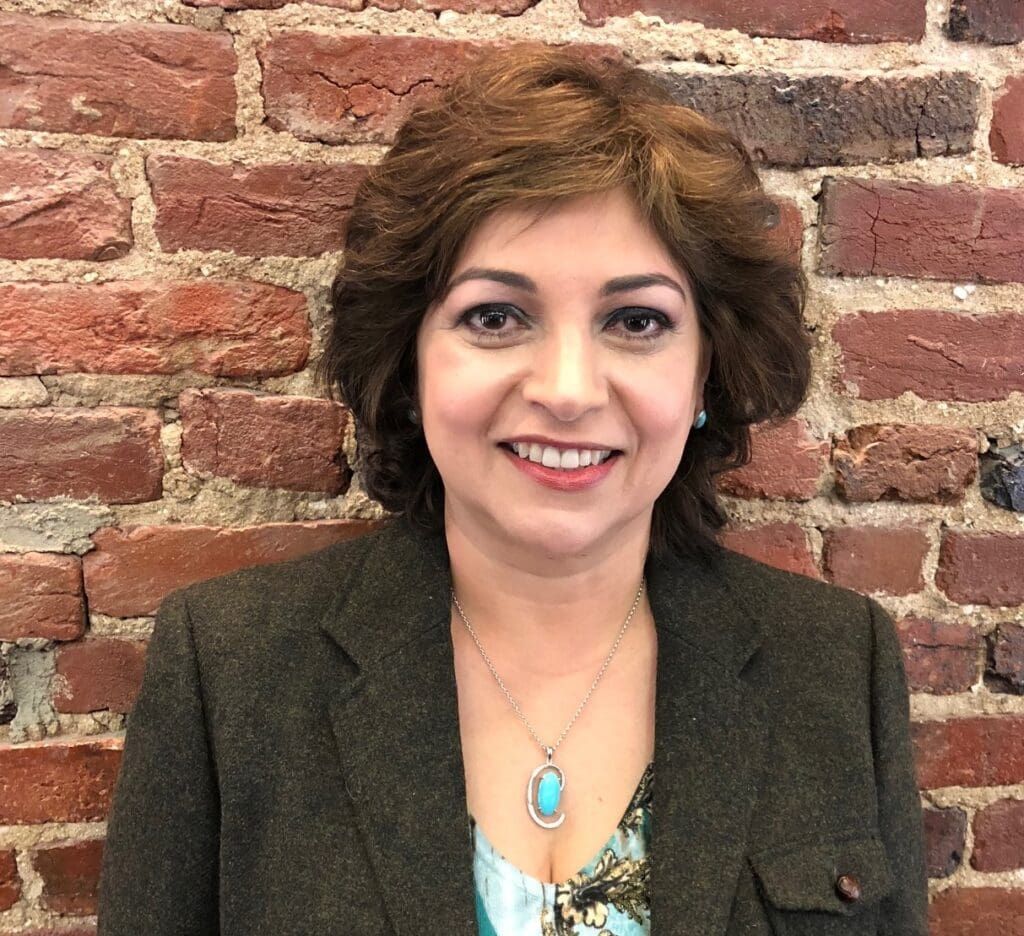
Mitra’s dissertation focuses on applying biomedical ontologies to detect adverse events from electronic health records (EHRs) in a phase I cancer trial. She has a great interest in the use of EHRs in clinical research and data standards development, with the ultimate goal of bridging the gap between healthcare and clinical research. She will be using biomedical ontologies and natural language processing in her research. Mitra’s dissertation committee is chaired by Dr. Jonathan Bona.
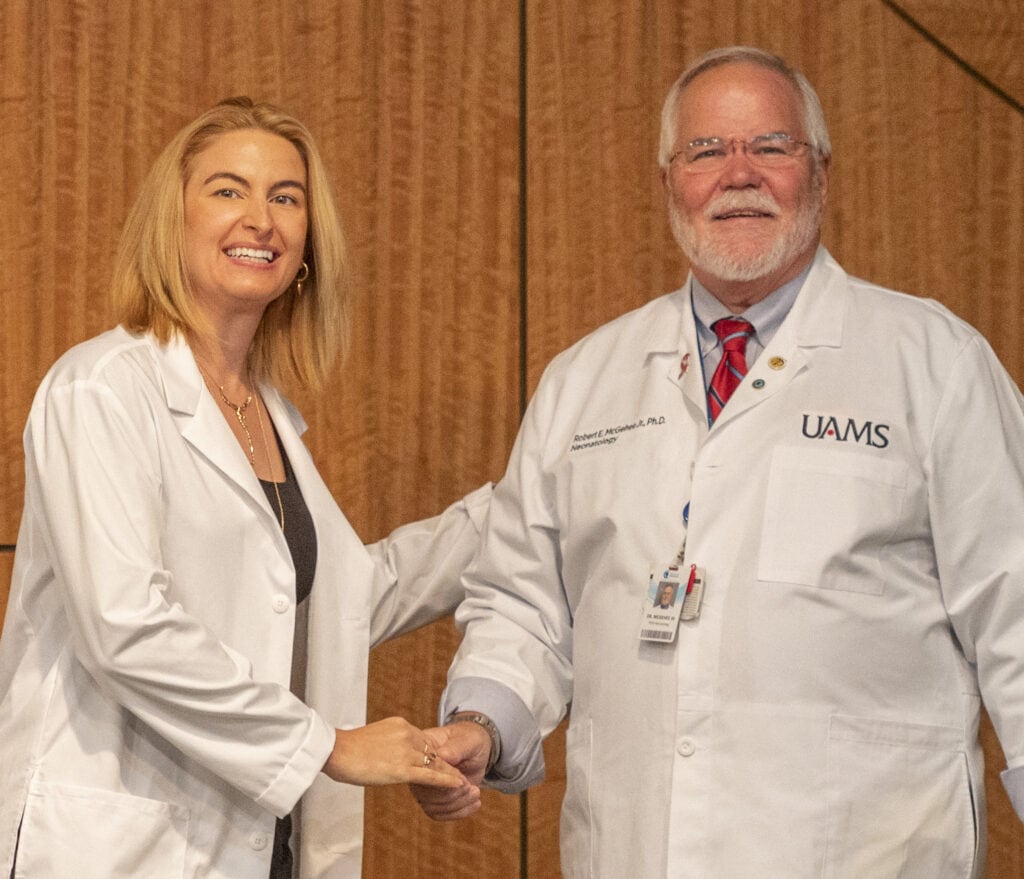
Cat‘s dissertation focuses on data mining on the social media platform Reddit for pharmacovigilance data.
“My background in drug development and work in clinical informatics give me a unique perspective on mining unstructured social media posts to understand the real-life use of drugs,” Cat said.
This body of research requires use of machine learning (ML) and natural language processing (NLP), both of which are areas of expertise in DBMI. Cat’s Dissertation Committee is chaired by Dr. Thomas Powell.
The success of many Ph.D. programs hinges on the mentee-mentor relationship. This mutually strong bond often lasts a lifetime. At the ceremony, Dr. Ussery and Dr. Powell helped Sangam and Cat don their white coats in recognition of this partnership, along with DBMI Graduate Program Director Dr. Horacio Gomez-Acevedo.
In addition to the three DBMI students, there were 23 students from other programs that advanced to doctoral candidacy.
Among them, Ashley Herdman is funded by the DART NSF grant, and is working with DBMI’s Dr. Larry Tarbox on imaging analysis.
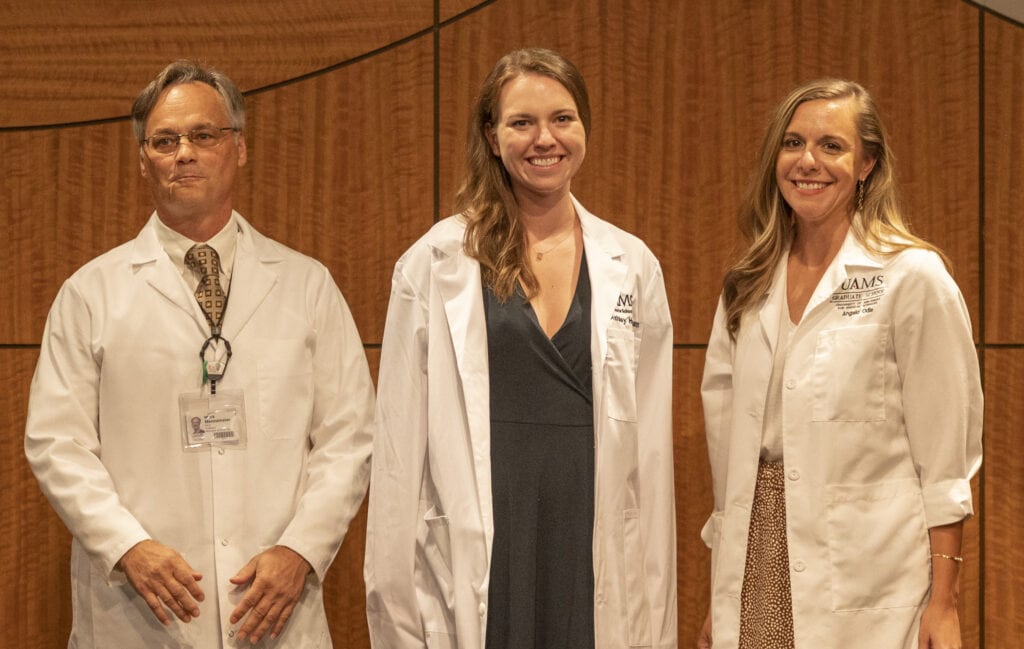
Ashley‘s project is currently studying pituitary cellular networks and how they communicate to aid in reproductive processes. Through the utilization of transgenic animal models, she is able to conduct high-resolution imaging of specific pituitary cell types and their response to various stimuli. In order to determine how signaling patterns of individual cells coordinate at the population level to achieve hormonal surges, she will analyze large imaging datasets with biological computing programs such as ImageJ and MATLAB.
In addition, Charles Burnham is in the Graduate Program in Interdisciplinary Biomedical Sciences. One of his co-mentors, Dr. Intawat Nookaew, is from DBMI. His second mentor is Dr. Alexei Basnakian of the Department of Pharmacology and Toxicology.
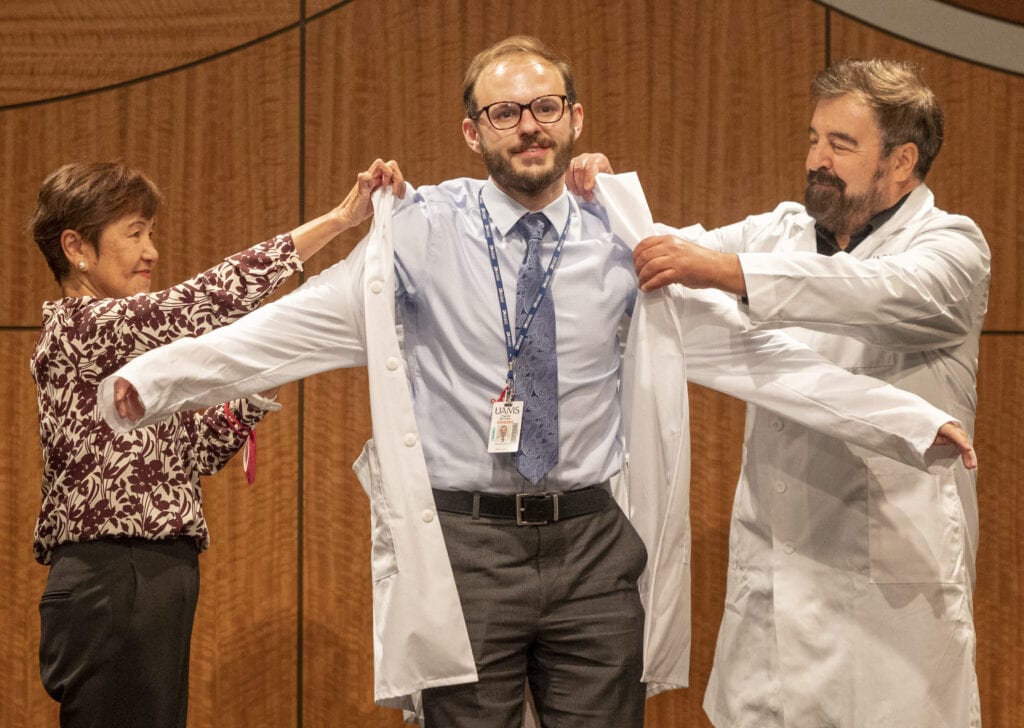
Burnham’s research involves the enrichment, amplification, and sequencing of extrachromosomal circular DNA (eccDNA) in breast cancer on the Oxford Nanopore sequencing platform. This molecule appears to play an elusive role in providing a means for intratumoral heterogeneity and chemotherapy resistance in cancers through copy number variations (CNVs). His research also intends to investigate the environment necessary for the generation and stability of these molecules by studying DNA fragmenting enzymes DNase I and EndoG, as he hypothesizes cancer cells provide the optimal environment for the formation of these molecules. With this, he can assess eccDNA as a cancer biomarker by studying its profile and stability within the circulation.
Sangam, Cat, Ashley, and Matthew participated in Monday’s induction ceremony, but Mitra was unable to attend.
